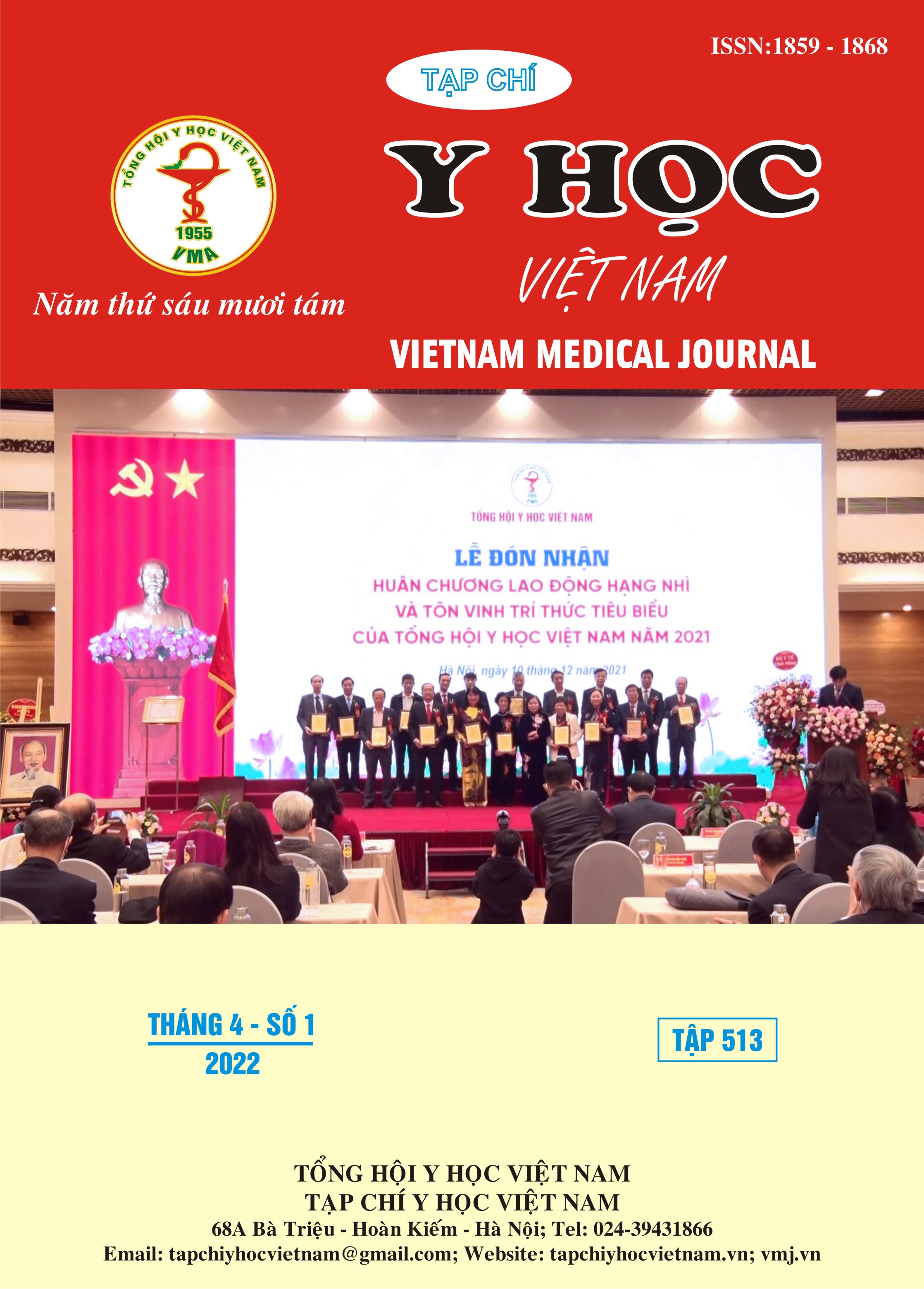COMPARING THE TREATMENT RESULTS OF NAVELBINE-CISPLATIN REGIMEN VERSUS PACLITAXEL-CISPLATIN REGIMEN IN STAGE IV NON-SMALL CELL LUNG CANCERPATIENTS
Main Article Content
Abstract
Objectives: To compare the treatment results of navelbine-cisplatin regimen versus paclitaxel-cisplatin regimen in stage IV non-small cell lung cancerpatients. Patients and methods: A clinicalinterventional study on70patients with stage IV NSCLC divided into 2 groups:treated with navelbin-cisplatin (35 patients) or paclitaxel-cisplatin (35 patients) at the Department of Oncology and Palliative Care, Hanoi Medical University Hospital from 01/2014 to 11/2020. Results: The overall response rates of navelbin-cisplatin and paclitaxel-cisplatin were 31.4% and 34.3%, respectively, the difference was not statistically significant (P>0.05). Median progression-free survivals (PFS) of patients treated with navelbin-cisplatin and paclitaxel-cisplatin were 4.5 months and 5 months, median overall survivals (OS) were 10.5 months and 10.8 months, respectively; the survivaldifference was not statistically significant (P>0.05). The rates of side effects were low, mainly of mild degree (grade 1/2). The rates of leucopeniaand stomatitis were higher in the navelbin-cisplatin group, while the rate of neurological toxicity was higher in the paclitaxel-cisplatin group, the differenceswerestatistically significant (P<0.05). Conclusion: Two regimens are equally effective in terms of oncologic outcomes with different toxicity profile.
Article Details
Keywords
stage IVnon-small cell lung cancer, Paclitaxel, Navelbin, Cisplatin
References
2. Non-small cell lung cancercollaborative group (2005). Chemotherapy in non-small cell lung cancer: A meta-analysisusing updated data on individual patientsfrom 52 randomized clinical trials. BMJ; 311: 899–909.
3. Non-small cell lung cancercollaborative group (2005). Chemotherapy in non-small cell lung cancer: A meta-analysisusing updated data on individual patientsfrom 52 randomized clinical trials. BMJ; 311: 899–909.
4. Bunn PA (2002). Chemotherapy foradvanced non-small-cell lung cancer: who,what, when, why? J Clin Oncol, 20:23s–33s.
5. Phạm Văn Trường (2013), Đánh giá hiệu quả hóa trị phác đồ vinorelbine-cisplatin trong ung thư phổi không tế bào nhỏ giai đoạn IIIB-IV tại Bệnh viện K, Luận văn Thạc sĩ Y học, Trường Đại học Y Hà Nội.
6. Kelly, K., Crowley, J., Bunn Jr, P. A., Presant, C. A., Grevstad, P. K., Moinpour, C. M., ... & Gandara, D. R. (2001). Randomized phase III trial of paclitaxel plus carboplatin versus vinorelbine plus cisplatin in the treatment of patients with advanced non–small-cell lung cancer: a Southwest Oncology Group trial. Journal of Clinical Oncology, 19(13), 3210-3218.
7. Novello, S., Kielhorn, A., Stynes, G., Selvaggi, G., De Marinis, F., Maestri, A., ... & Italian Lung Cancer Project Investigators. (2005). Cost-minimisation analysis comparing gemcitabine/cisplatin, paclitaxel/carboplatin and vinorelbine/cisplatin in the treatment of advanced non-small cell lung cancer in Italy. Lung Cancer, 48(3), 379-387.
8. Scagliotti, G. V., De Marinis, F., Rinaldi, M., Crino, L., Gridelli, C., Ricci, S., ... & Tonato, M. (2002). Phase III randomized trial comparing three platinum-based doublets in advanced non–small-cell lung cancer. Journal of Clinical Oncology, 20(21), 4285-4291.


